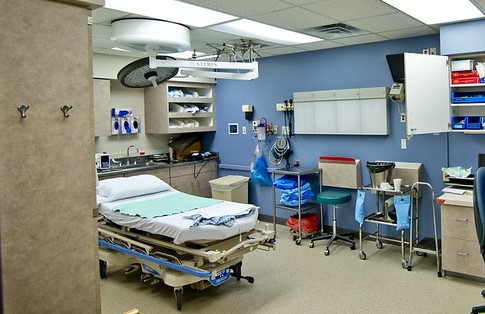 The terms assisted suicide and euthanasia are commonly used interchangeably, however, they refer to slightly different procedures. Assisted suicide involves an individual ending their natural life through self-administered lethal drugs prescribed by a physician. In contrast, euthanasia, also commonly known as mercy killing, broadly refers to the practice that involves a physician administering a lethal dose of drugs to unnaturally end the life of the patient with (voluntary) or without (involuntary) consent.
The terms assisted suicide and euthanasia are commonly used interchangeably, however, they refer to slightly different procedures. Assisted suicide involves an individual ending their natural life through self-administered lethal drugs prescribed by a physician. In contrast, euthanasia, also commonly known as mercy killing, broadly refers to the practice that involves a physician administering a lethal dose of drugs to unnaturally end the life of the patient with (voluntary) or without (involuntary) consent. “Medical aid in dying,” or “medical assistance in dying,” known as MAID for short, broadly refers to a range of controversial practices, including assisted suicide and euthanasia. In the United States although euthanasia is illegal in all 50 states, assisted suicide often takes on the label, “medical aid in dying,” and is currently legal in 10 states and the District of Columbia. In recent years, the “right to die” movement has led to an increase in public acceptance of these procedures, and the number of states considering “Death with Dignity” bills has been on the rise. In 2001, the Netherlands became the first country to officially legalize euthanasia including assisted suicide, however, assisted suicide alone was first legalized in Switzerland in the 1940s. Since then, in the last 25 years, global recognition and legalization of euthanasia and assisted suicide practices have increased dramatically, with Ecuador becoming the latest country to decriminalize euthanasia on February 7, 2024.
A few countries with MAID programs already in place have loosened qualifying restrictions expanding access to the program. Both Belgium and the Netherlands have legalized child euthanasia in some respect, with Belgium allowing children of any age to seek euthanasia in certain instances. Furthermore, some countries have expanded coverage further to include those suffering from mental illness alone. Most notably until recently, Canada was on track to expand their MAID program to, “persons suffering solely from a mental illness,” until Canada’s Health Minister, Mark Holland, introduced legislation to delay the expansion for three years.
Why does it matter?
Under the guise of compassion and personal autonomy, proponents of MAID perpetuate a culture of death. Some advocates go as far as classifying access to MAID, as a “human right.” Clever language such as, “death with dignity,” or “compassionate end-of-life care,” is used to perpetuate a misunderstanding of what these programs really are, often conflating them with other end-of-life care such as hospice. Even the term MAID, “medical aid in dying,” itself is misleading and used because it sounds “better” than assisted suicide or euthanasia.
Although Canada and a handful of other countries with similar programs may be considered out of the global norm on these practices, the number of countries around the world and states in the U.S. considering similar legislation on MAID is on the rise. Additionally, several jurisdictions with MAID programs already in place are tamping down qualifying restrictions, increasing the number of deaths by MAID while putting vulnerable communities at risk. Notably, during the past two decades, the proportion of deaths due to assisted suicide has approximately doubled in the Netherlands, tripled in Washington, and tripled in Oregon.
As MAID rises in global acceptance, the moral line at “where we stop” grows more indistinguishable. At one time, MAID was thought of as only impacting those who were deemed incurable. However, now many countries with MAID programs including Canada, don’t require the individual to be facing imminent death to be eligible. Furthermore, several reports of medical personnel in Canada pressuring patients with physical and mental disabilities to consider MAID to save the government money, show the slippery moral slope MAID programs create in society. In one reported instance, a veteran suffering from PTSD was pressured to pursue MAID even when he hadn’t requested information on the program.
As our culture has become coarser in its discussions around life, the medical establishment has followed suit. Over time, medical ethics and the Hippocratic oath to “do no harm” have been distorted and ultimately disregarded. We have gone from a culture that embraces medical innovation and exploration to prolong life, to one that works to end life prematurely and deeming it “progressive,” to do so. MAID is anything but compassionate. It has systemically caused a countless number of premature deaths around the world. It is antithetical to human dignity and the Christian perspective that life is valuable from the womb to the tomb. The understanding that we are made in the image of God, embodied with a unique soul that distinguishes us from other animals and reaffirms the value of every living human life. Major grassroots mobilization is needed to end these unethical and immoral practices.
